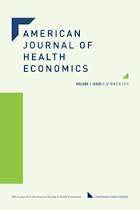Posted by Michael Wonder on 01 Feb 2017
Pharmaceutical patent challenges: company strategies and litigation outcomes

31 January 2017 - The pharmaceutical industry has experienced a large number of patent challenges in recent years.
Key catalysts for this were legal and regulatory changes that awarded 180-day exclusivity rights for first-filing generic firms not only on the basis of a court victory, but also through a settlement with the patent owner. In this paper, Grabowski et al have assembled a unique data set on new drugs approved from 1994 to 2006, including detailed information on patent challenges and litigation outcomes.
They found that the new regulatory environment induced significant behavioural changes, including racing by generic firms to challenge patents for large-selling drugs in an environment where more patents are filed by branded firms. Increased generic challenges to different types of patent claims are linked to reduced market exclusivity periods for branded drugs, based on regression analyses and litigation outcomes. Settlements that allow entry prior to patent expiry are a prevalent litigation outcome given the risks of an unfavourable court decision that can adversely affect a company's market valuation.
This topic remains an important issue for further research, particularly given different public policies governing patent challenges for biosimilars and biologics compared with those for generic drugs and new chemical entities.

